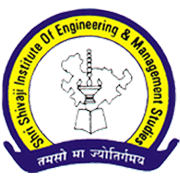| Outcome Identifier |
Outcomes |
| PO1 |
The graduates will possess the knowledge of various discrete mathematical structures, Logic and numerical techniques. |
| PO2 |
The graduates will have an ability to apply mathematical formalism of Finite Automata and Probability in modelling and analysis of systems. |
| PO3 |
The graduates will have knowledge of core programming paradigms such as database orientation, object orientation, and agent orientation and concepts essential to implement software based system. |
| PO4 |
The graduates will have an ability to analyze problem, specify algorithmic solutions to them and to evaluate alternative solutions. |
| PO5 |
The graduate will have broad understanding of the impact of a computer based solutions in economic, environmental and social context and will demonstrate use of analytical tools in gathering requirements and distilling relevant information to provide computer based solutions. |
| PO6 |
The graduates will demonstrate the ability to build human centric interfaces to computers. |
| PO7 |
The graduates will possess the knowledge of advanced and emerging topics in the fields of operating systems, databases and computer networks. |
| PO8 |
The graduates will possess skills necessary to communicate design engineering ideas. The skills set include verbal, written and listening skills. |
| PO9 |
The graduates will understand ethical issues in providing computer based solutions also they will have an ability and attitude to address the ethical issues. |
| PO10 |
The graduates will understand the role of system software such as operating systems, database management systems, compilers, and middle-ware and internet protocols in realizing distributed information environment. |



